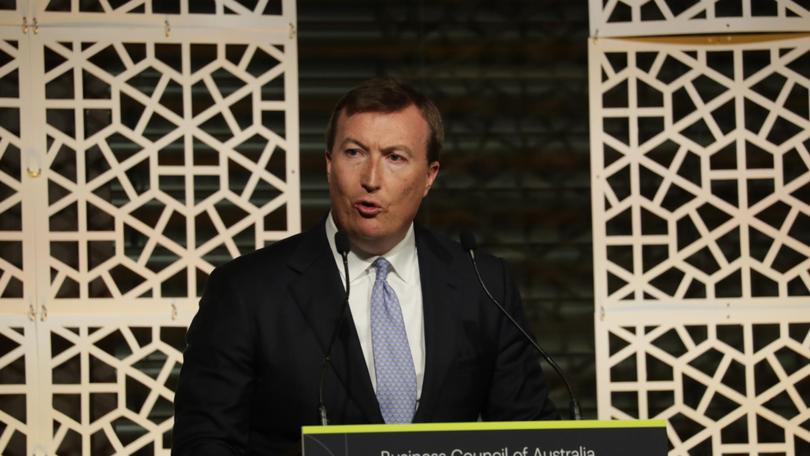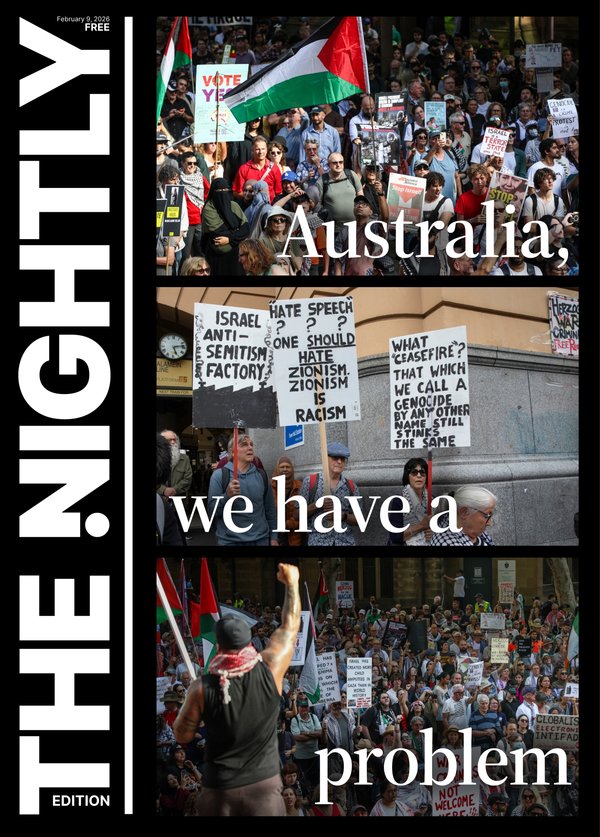Business Council of Australia says tax cuts are the Trump card for economic revival
Australia should slash the company tax rate to attract investment and help reverse declining living standards, the Business Council of Australia says.

Australia should slash the company tax rate to attract investment and help reverse declining living standards, the Business Council of Australia says.
Income per person has been going backwards for 18 months and the lobby group is seeking to respark debate about reform, warning the country’s economic fundamentals are a “burning platform” hidden by booming exports.
BCA wants taxes cut from 30 per cent of profit to 25 per cent to get growth moving, according to a new productivity report released on Monday night.
Sign up to The Nightly's newsletters.
Get the first look at the digital newspaper, curated daily stories and breaking headlines delivered to your inbox.
By continuing you agree to our Terms and Privacy Policy.“The past decade saw our living standards grow at their slowest (pace) since the Great Depression in the 1930s, and unless we turn it around the next decade could be even worse,” chief executive Bran Black said.
The United States is expected to cut company tax after incoming president Donald Trump promised to reduce the rate from 21 per cent to 15 per cent.
Australia’s levy on major businesses is among the highest in the world, BCA said.
Evidence shows company taxes have a more severe impact on the economy than alternatives, including taxing land, carbon emissions and the GST.
Industry Minister Ed Husic reportedly called for a lower company tax rate in May, joining a long line of senior Labor figures who have backed the move in the past 15 years.
But a bid by the Turnbull Government to slash the rate stalled in the Senate in 2018 — leaving a two-tiered system with a lower levy for small and medium businesses only.
Despite widespread claims corporate greed has been driving cost of living pain, Australian Bureau of Statistics data showed profits fell 5.3 per cent in the June quarter even as inflation remained well-above the Reserve Bank’s target band.
Also on the BCA’s wish list were streamlining red tape and backing uptake of artificial intelligence.
The proposals come after the Business Council copped widespread criticism for failing to articulate arguments in favour of economic reform in recent years.
It wasn’t all bad news, however. Australia has dramatically moved up global competitiveness rankings in the past two years, from 22nd to 12th, BCA’s report shows.
Treasurer Jim Chalmers’ new $900 million National Productivity Fund got backing from the BCA, too.
That is intended to encourage State and Territories to shake up their agendas and pursue growth, including through cutting red tape and lowering bad taxes.
“Treasurer Jim Chalmers’s recent announcement of a National Productivity Fund is a significant step in the right direction, and the key will now be in implementation and achieving scale,” Mr Black said.
The report highlighted evidence Australia’s private sector is shrinking as Government spending rockets and public demand dominates new job creation.
“Relying too heavily on higher government spending in typically less productive activities risks creating a cohort in the economy permanently dependent on government funding.
“Such arrangements can mean slower average economic growth over time.
“It can mean more industries leaving Australia as the inefficient and un-competitive industries did in the past when the subsidies ran out.”
